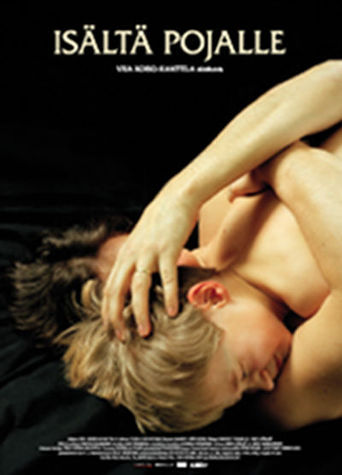

the audience applauded
... View MoreThis is a small, humorous movie in some ways, but it has a huge heart. What a nice experience.
... View MoreBlistering performances.
... View MoreBy the time the dramatic fireworks start popping off, each one feels earned.
... View MoreIn "Isältä pojalle", Visa Koiso-Kanttila has taken a very personal perspective in fatherhood. A fresh father himself, he tries to rebuild his relationship to his own father. This documentary shows us four generations of men and the burden of the masculine gender role they all move to their own sons. Visa, as a part of the "active" generation of today, the one who is raising his own children at the very moment, is trying to change things by discussing the most difficult subjects.The basic idea of the film is to question the tradition of masculinity. In Finland, the generation born after the latest world war is the first one not to have experienced any war. But are the children still brought up as potential soldiers? The point Koiso-Kanttila is bringing up is the fact that he himself was taught not to show his emotions, and he was guided towards the traditional male role. He sees this as a reason to his personal inability to confront his father, and fears he will fail as a father by being unable to change the tradition.All the way, the father is given a change to say his opinion, and factually response to the accusations set by his son. As the father sees the past in a completely different light, even denying some of his son's memories, the audience is left with nothing but doubt. The situation is utterly disturbing, and one might wonder if this actually is a documentary or not. On the other hand, Koiso-Kanttila uses some very nice tricks to increase the level of emotion. I especially liked the part in which his own figure can be seen in a mirror behind his father, who was being interviewed.Whatever the case, the film reminds us of a very important characteristics of human life. The perspective of a child is very different from the one of an adult. We all have the tendency to remember things in our favor, that is for sure. But when it comes to children, it is not so important what actually happened, but what the child actually experienced. Therefore, even the truth of what objectively happened can be seen from the family album, the reality in the child's mind is the important one. It is not enough for parents to do things "right", if the child is not heard.At some points, the film manages to show the problematic nature of the traditional masculinity when combined with modern fatherhood. The film doesn't try to be artistic, but merely just attempts to make the similarities between the men of different generations as obvious as possible. It works very well. The problem is, the director himself is very far from an average Finnish man, but merely a caricature. It makes the film interesting, but I'm afraid the extreme nature of his expression makes it very difficult for the fathers to accept the message. They should remember, though, that this documentary is not accusing them, but merely pointing at the mistakes their sons should avoid making. If they are not talked about, they can not be avoided.But after all, I don't think most Finnish men get this traumatized just because authoritative father figures. The puberty might be difficult, but sometimes it's needed - one just has to find their own will and start living independently. Altogether, the film is an interesting and extremely skilled study of masculinity. Unfortunately it fails to reach large audiences because of its extreme nature. Obviously there is much to expect from Koiso-Kanttila in the future anyway. I'll wait and see.
... View More